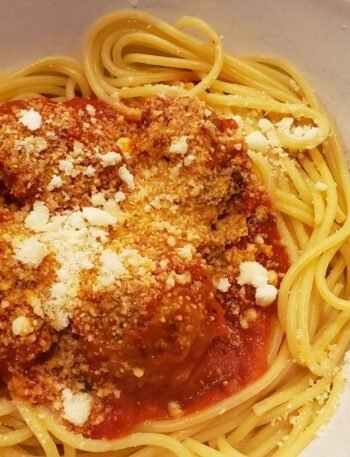Introduction to Marinades
Marinades are a fundamental aspect of culinary arts, especially when it comes to preparing meats like steak, chicken, and roasts. They serve as a cornerstone for enhancing flavor, tenderness, and overall quality, making them a go-to technique for both amateur and professional chefs alike. At its core, a marinade typically consists of three main components: acid, oil, and seasonings. Each of these elements plays a crucial role in transforming the meat into a succulent and flavorful dish.
The acidic component usually comes from ingredients such as vinegar, citrus juice, or wine. These acids help to break down the proteins in the meat, which aids in making it more tender. The oil, often sourced from olive oil, avocado oil, or sesame oil, acts as a medium that delivers fat-soluble flavors into the meat while also preventing it from drying out during the cooking process. Finally, seasonings like herbs, spices, garlic, and onions bring depth and complexity to the flavor profile of the meat, allowing for an expansive range of culinary creativity.
The importance of a balanced marinade cannot be overstated. Too much acid can overwhelm the natural flavors and cause the meat to become mushy, whereas insufficient seasoning may result in a bland taste. Therefore, understanding the role of each component in your marinade mix is paramount for achieving the best results.
Incorporating safety considerations is equally important when using marinades. Proper marination times vary depending on the type of meat and the strength of the marinade. For instance, chicken typically requires around 2-6 hours, while tougher cuts of beef may benefit from an overnight soak. Handling of raw meat also necessitates stringent hygiene practices to prevent cross-contamination and foodborne illnesses. Always marinate meat in the refrigerator and discard any used marinade that has come into contact with raw meat. To learn more visit my page Comprehensive Guide to Kitchen Sanitation: Preventing Foodborne Illness.
With this knowledge, readers can feel confident in their ability to master simple yet effective marinades, thereby unlocking new dimensions of taste and tenderness in their culinary endeavors.
Creating the Perfect Marinade for Steak

Marinades serve as an excellent way to enhance the natural flavors of steak, adding depth and complexity to your dish. When crafting a marinade for steak, there are a few key components to consider: acids, oils, and seasonings.
Acids, such as vinegar or citrus juice, play a vital role in tenderizing the meat while infusing it with flavor. Balsamic vinegar is a classic choice for its rich, slightly sweet profile that complements the robust taste of beef. For a spicy twist, lime juice can be used as the acidic element in a Southwest-inspired marinade. Soy sauce and rice vinegar work beautifully in Asian-style marinades, imparting a savory umami depth.
Oils in your marinade help to lock in moisture and distribute the flavors evenly across the steak. Olive oil is a versatile staple, suitable for traditional and inventive marinades alike. Sesame oil can add an unique dimension to an Asian-inspired marinade, while avocado oil’s high smoke point makes it ideal for grilling.
Seasonings elevate the flavor profile of your steak marinade. Garlic, rosemary, and black pepper create a timeless blend that complements balsamic vinegar. For a Southwest marinade, consider using chili powder, cumin, and paprika. In an Asian-themed preparation, ginger, garlic, and a touch of honey or brown sugar can amplify the savory notes from the soy sauce.
To illustrate, here are three detailed recipes:
- Classic Balsamic Marinade: Combine ¼ cup balsamic vinegar, 2 tablespoons olive oil, 3 minced garlic cloves, 1 tablespoon chopped rosemary, and freshly ground black pepper. Marinate for 1-2 hours.
- Spicy Southwest Marinade: Mix ¼ cup lime juice, 2 tablespoons olive oil, 1 tablespoon chili powder, 1 teaspoon ground cumin, ½ teaspoon smoked paprika, and finely minced jalapeño. Marinate for 1-2 hours.
- Asian-Inspired Marinade: Blend ¼ cup soy sauce, 2 tablespoons rice vinegar, 2 tablespoons sesame oil, 1 tablespoon grated ginger, 2 minced garlic cloves, and 1 tablespoon honey. Marinate for 1-2 hours.
When it comes to marination times, thinner cuts of steak may only require 30 minutes to an hour, while thicker cuts can benefit from 1-2 hours. Be cautious not to over-marinate, as extended exposure to acids can break down the meat excessively, resulting in a mushy texture.
Lastly, marinating vessels should ideally be non-reactive, such as glass or food-grade plastic and stainless steel to maintain the integrity of the flavors. After marinating, achieve the best results by grilling or cooking your steak to the desired level of doneness, allowing it to rest before slicing. This process ensures the juices redistribute, and the flavors meld beautifully.
Simple Marinades for Chicken
Chicken, with its mild flavor profile, serves as an excellent canvas for a variety of marinades that can significantly elevate its taste. Preparing simple marinades that infuse chicken with vibrant flavors is both an art and a science. In this section, we will explore how to create three versatile marinades—citrus-herb, tangy yogurt-based, and smoky BBQ—that can suit various cuts such as breasts, thighs, and wings.
To start, the citrus-herb marinade combines zest and freshness, ideal for enhancing the natural flavor of the chicken without overpowering it. Mix freshly squeezed lemon or orange juice, olive oil, minced garlic, chopped fresh herbs like rosemary or thyme, and a hint of honey. This marinade works wonderfully with chicken breasts, infusing them with a delightful tangy and herbaceous note. Allow the chicken to marinate for at least 30 minutes but no longer than 4 hours to maintain texture and ensure safety.
Next, the tangy yogurt-based marinade leverages the natural acidity of yogurt to tenderize the meat while adding a rich, creamy tang. Combine plain yogurt with lemon juice, crushed garlic, ground cumin, and a touch of paprika. This marinade is exceptionally well-suited for chicken thighs, providing a flavorful, succulent result. Allow the chicken to marinate for a minimum of 1 hour, extending up to 8 hours for deeper flavor penetration.
Lastly, the smoky BBQ marinade provides a robust, hearty flavor perfect for grilled or roasted chicken wings. Blend barbecue sauce with smoked paprika, Worcestershire sauce, a dash of apple cider vinegar, and a pinch of cayenne. This marinade should coat the wings well and can be left to marinate for 1 to 3 hours to impart a smoky, intense flavor profile without risking toughness.
Marination times are crucial—under-marinating can result in bland tastes while over-marinating might lead to an undesirable texture. For safe and optimal flavor infusion, follow the recommended marination times specific to each cut. By mastering these simple marinades, you can transform ordinary chicken into a memorable culinary experience.
Try my recipe Easy Jamaican Jerk Chicken.

Best Marinades for Roasts
Mastering marinades for roasts can elevate your culinary skills, yielding flavorful, succulent dishes that leave a lasting impression. When it comes to roast beef, pork, or lamb, using robust and aromatic marinades is essential to stand up to the longer cooking periods. A well-balanced red wine and garlic marinade, for example, brings out the deep, savory notes in beef. Combine 1 cup of red wine, 6 minced garlic cloves, 2 tablespoons of olive oil, 1 tablespoon each of rosemary and thyme, and salt and pepper to taste. Let the roast sit in this mixture for a minimum of 4 hours, but overnight is preferable for maximum infusion.
For roast pork, a mustard and rosemary marinade creates a beautiful, tangy flavor profile. Mix together 1/2 cup of whole-grain mustard, 1/4 cup of fresh rosemary leaves, 1/4 cup of lemon juice, and 2 tablespoons of olive oil. This marinade should envelop the pork for at least 4 hours to penetrate the meat thoroughly, but again, an overnight marination yields the best results.
Lamb, on the other hand, pairs incredibly well with a sweet and savory honey-soy combination. In a bowl, blend 3 tablespoons of honey, 1/4 cup of soy sauce, 3 minced garlic cloves, 2 tablespoons of olive oil, and a tablespoon of fresh grated ginger. Marinate the lamb for a minimum of 4 to 6 hours, allowing the flavors to meld and deepen.
When marinating large cuts of meat, ensure even coverage by turning the roast periodically. Use a resealable plastic bag or a large, shallow dish for best results. Maintaining moisture and achieving a delectable crust are crucial. Pre-searing the roast in a hot pan before baking can help form a crust that locks in juices. Additionally, basting the roast with its own juices or reserved marinade during cooking can add layers of flavor and prevent dryness.
What is Jamaican Jerk Pork?
Jamaican jerk pork is a vibrant dish that showcases the culinary traditions of Jamaica. Known for its unique combination of spices, this beloved recipe bursts with flavors that celebrate the island’s rich heritage. Marinating pork in a jerk seasoning blend elevates the meat, infusing it with a smoky, spicy profile that is both aromatic and tantalizing.
The Importance of Marination
Marinating pork is a crucial step in ensuring that the meat remains tender and flavorful. The marinade acts as a flavor enhancer, allowing the spices to penetrate the pork and transform it into a mouthwatering dish. For Jamaican jerk pork, the marinade typically includes ingredients such as scallions, thyme, allspice, and habanero peppers, creating a piquant experience that tantalizes the taste buds.
How to Marinate Jamaican Jerk Pork
To achieve the perfect Jamaican jerk pork, begin by preparing your marinade. Blend together your seasonings, then coat the pork generously. Ideally, let the pork marinate overnight to absorb all the flavors fully. This slow infusion not only deepens the taste but also helps tenderize the meat, leading to a succulent final dish. When ready to cook, grill or roast your marinated pork, allowing the incredible aromas of jerk spices to fill the air. Try my recipe Jamaican Jerk Chicken.
Discover more from In The Kitchen With Vic
Subscribe to get the latest posts sent to your email.






